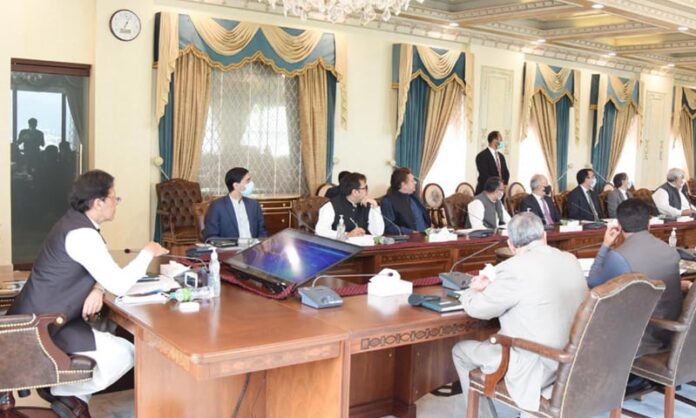ISLAMABAD: The government is extending all possible facilities to exporters and there is a need to promote exports of non-traditional goods, said Prime Minister Imran Khan.
Chairing a meeting to review Pakistan’s export performance on Wednesday, he called for enhancing focus on countries where Pakistani products were in high demand.
He told meeting participants to fix targets for trade attaches in Pakistani embassies abroad and examine their performance so they could work for enhancing exports.
The prime minister was told that value-added exports surged $3.8 billion in fiscal year 2020-21 while non-traditional goods exports soared $2.7 billion owing to government’s investment-friendly policies and incentives given to the exporters.
Officials of the Ministry of Commerce told the meeting that textile goods were traditional exports of Pakistan but the government was taking steps to enhance shipments of non-traditional items as well like minerals, food products, fruits, IT and ceramics.
Separately, chairing a meeting on the development of agricultural sector, the premier said for the first time a comprehensive strategy had been formulated for the betterment of agricultural sector.
The PM said the Agricultural Transformation Plan (ATP) was the first step towards food autonomy and the Agri Dashboard would prove helpful in timely decision-making.
The meeting was attended by Finance Minister Shaukat Tarin, National Security Adviser Moeed Yousuf, special assistants Dr Shahbaz Gill, Jamshed Iqbal Cheema and other officials. The chief secretaries of the four provinces joined the meeting through video-link.
It was highlighted that the Food Security Dashboard had been fully activated for wheat.
The dashboard contains the demand and supply indicators of wheat at tehsil, district, division, province and national level.
The dashboard will guide about the effective monitoring of prices, procurement and the timely decision-making. It will also help in taking timely action against profiteers and those involved in hoarding of agricultural commodities. It will be updated on daily statistics to prepare the real-time data on availability of wheat.
The meeting was informed that after wheat, the categories of sugar and other food commodities would be added to the dashboard. The steps are aimed at saving the country from the future food crisis.
Later, the meeting was given a detailed briefing on the ATP. The plan includes ensuring supply of high-quality seeds to increase crop yields.
In this regard, after amendments in rules and regulations, only those companies in the country will be registered which provides high-quality seeds after research.
Under Asian Development Bank, a PC-1 for distribution of quality seeds among Punjab, Balochistan and Khyber Pakhtunkhwa has also been approved.
To ensure access of farmers to seeds, the data from the Consumer Sourcing Authenticity System will be completed by this December.




